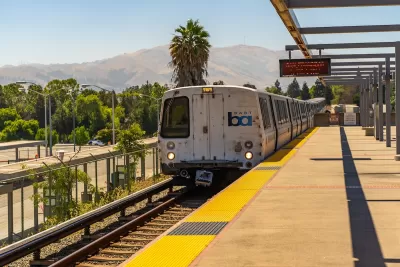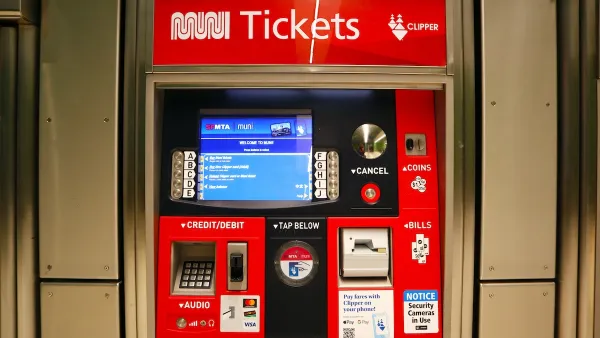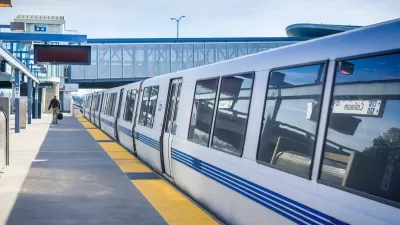The transit agency says it needs more state and federal support to meet its operating costs and avoid a growing budget gap.

Bay Area Rapid Transit (BART) riders in the San Francisco Bay will see a 5.5 percent increase in fares starting on January 1, reports Aidin Vaziri for The San Francisco Chronicle.
According to Vaziri, “BART officials say the increase is essential to support ongoing operations and to address a growing budget deficit, which is projected to reach $35 million by 2026 and balloon to $385 million by 2027.” The agency continues to rely on fares as an important source of revenue, but that model has become largely unsustainable.
Like other transit leaders around the country, BART officials are calling on state and federal governments to support public transit with more dedicated funding. “As part of its strategy to balance the budget, BART is also focusing on cost-saving measures, such as more efficient scheduling and reduced train sizes to lower operational expenses.”
FULL STORY: BART announces another fare hike as agency struggles with budget woes

Maui's Vacation Rental Debate Turns Ugly
Verbal attacks, misinformation campaigns and fistfights plague a high-stakes debate to convert thousands of vacation rentals into long-term housing.

Planetizen Federal Action Tracker
A weekly monitor of how Trump’s orders and actions are impacting planners and planning in America.

In Urban Planning, AI Prompting Could be the New Design Thinking
Creativity has long been key to great urban design. What if we see AI as our new creative partner?

King County Supportive Housing Program Offers Hope for Unhoused Residents
The county is taking a ‘Housing First’ approach that prioritizes getting people into housing, then offering wraparound supportive services.

Researchers Use AI to Get Clearer Picture of US Housing
Analysts are using artificial intelligence to supercharge their research by allowing them to comb through data faster. Though these AI tools can be error prone, they save time and housing researchers are optimistic about the future.

Making Shared Micromobility More Inclusive
Cities and shared mobility system operators can do more to include people with disabilities in planning and operations, per a new report.
Urban Design for Planners 1: Software Tools
This six-course series explores essential urban design concepts using open source software and equips planners with the tools they need to participate fully in the urban design process.
Planning for Universal Design
Learn the tools for implementing Universal Design in planning regulations.
planning NEXT
Appalachian Highlands Housing Partners
Mpact (founded as Rail~Volution)
City of Camden Redevelopment Agency
City of Astoria
City of Portland
City of Laramie





























